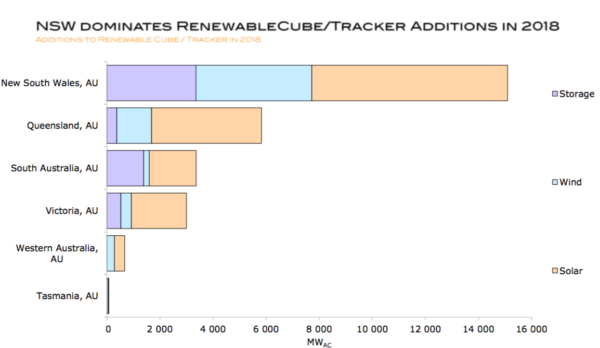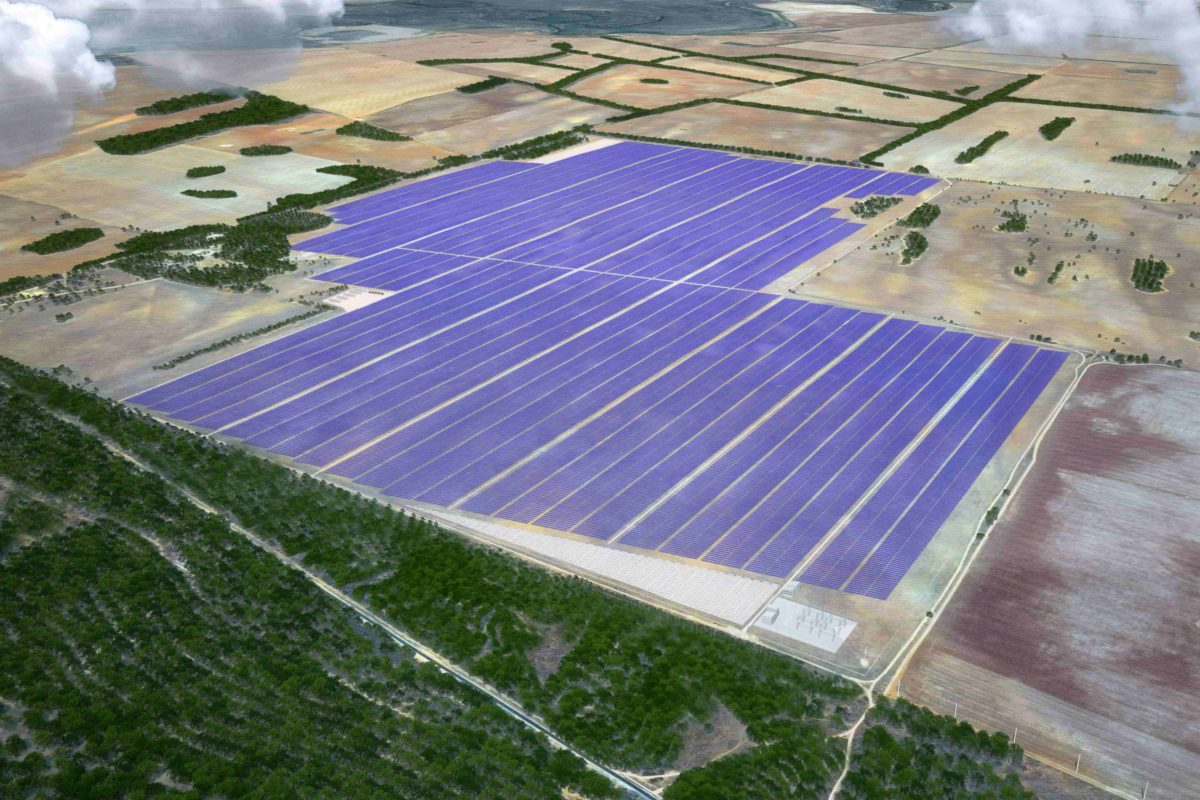ESCO Pacific’s proposal for a 100 MW solar farm near West Wyalong received development approval from the New South Wales Government on Friday, and is likely to begin construction by early 2020, creating 150 employment opportunities in this region of agribusinesses and irrigation on the dry inland plains west of the Snowy Mountains.
The $130 million project will join a gold rush of large-scale solar developments in the Riverina, including Finley Solar Farm (170 MW); Darlington Point Solar Farm (333 MW); Coleambally
Solar Farm (150 MW) and Sunraysia Solar Farm (255 MW).
Rob Stokes, NSW Minister for Planning and Public Spaces, described the Riverina as a growing hub of solar energy projects, with this latest approval set to power the equivalent of 37,500 homes.
“These solar projects,” said Stokes, are “supporting the creation of a thriving renewable energy industry in NSW.”
The NSW Government has committed to achieving net-zero emissions for the state by 2050, and said in a statement that this latest approval — one of 26 solar projects approved by the governing Liberal-National coalition since 2017 — will help NSW meet its target.
It also drives the state a step closer to achieving the goal of its Climate Change Fund Strategic Plan to double the state’s renewable-energy capacity to more than 10,000 MW by 2021.
The Clean Energy Council’s (CEC) Clean Energy Australia Report 2019 found that only 15% of the state’s electricity was drawn from renewables in 2018, but this doesn’t reflect the huge pipeline of projects slated for NSW.
At the end of 2018, NSW had 24 large-scale renewable energy projects under construction or financially committed, with a capacity of 3,467 MW, and “almost 90 large-scale projects in its planning system”, reported the CEC. This graph from Rystad Energy’s RenewableCube underscores solar’s role in NSW’s future energy mix.

Graph: Rystad Energy
The transmission imperative
West Wyalong straddles the crossroads of the Newell and Mid-Western Highways, but more importantly offers grid connection via an existing 132 kV transmission line from Temora to Lake Cowall, and falls within the NSW Government’s South West Priority Energy Zone.
In its Transmission Infrastructure Strategy, launched in November 2018, Priority Energy Zones were identified as “areas of high energy resource potential where strategic transmission infrastructure upgrades can connect multiple projects at lower cost”. NSW Government has undertaken to fast-track planning and licensing frameworks to help support timely investment in transmission infrastructure in these areas.
The West Wyalong project may potentially also integrate a 25 MW battery storage system in the form of lithium-ion batteries housed on site in containerised packs.
ESCO Pacific, is known in Australia for large-scale developments such as Finley Solar Farm (since sold to John Laing) which, when it reaches completion this year, will supply the equivalent of 20% of Bluescope Steel’s Australian electricity needs via a seven-year power purchase agreement (PPA) — one of the most significant PPAs of 2018.
“We have a booming solar industry in NSW, which will become a vital part of our energy mix as we transition to a cleaner, more sustainable energy future,” said the Minister for Energy and Environment, Matt Kean upon announcement of the West Wyalong approval.
This content is protected by copyright and may not be reused. If you want to cooperate with us and would like to reuse some of our content, please contact: editors@pv-magazine.com.









2 comments
By submitting this form you agree to pv magazine using your data for the purposes of publishing your comment.
Your personal data will only be disclosed or otherwise transmitted to third parties for the purposes of spam filtering or if this is necessary for technical maintenance of the website. Any other transfer to third parties will not take place unless this is justified on the basis of applicable data protection regulations or if pv magazine is legally obliged to do so.
You may revoke this consent at any time with effect for the future, in which case your personal data will be deleted immediately. Otherwise, your data will be deleted if pv magazine has processed your request or the purpose of data storage is fulfilled.
Further information on data privacy can be found in our Data Protection Policy.